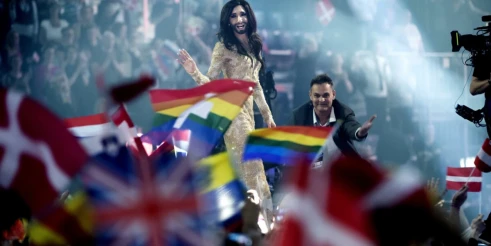
Why is Eurovision so gay?
Straight men have football and gays have Eurovision.
No Comments Found
Comments / Reviews are the subjective opinion of Travel Gay users, not of Travel Gay.

No Comments Found
Comments / Reviews are the subjective opinion of Travel Gay users, not of Travel Gay.